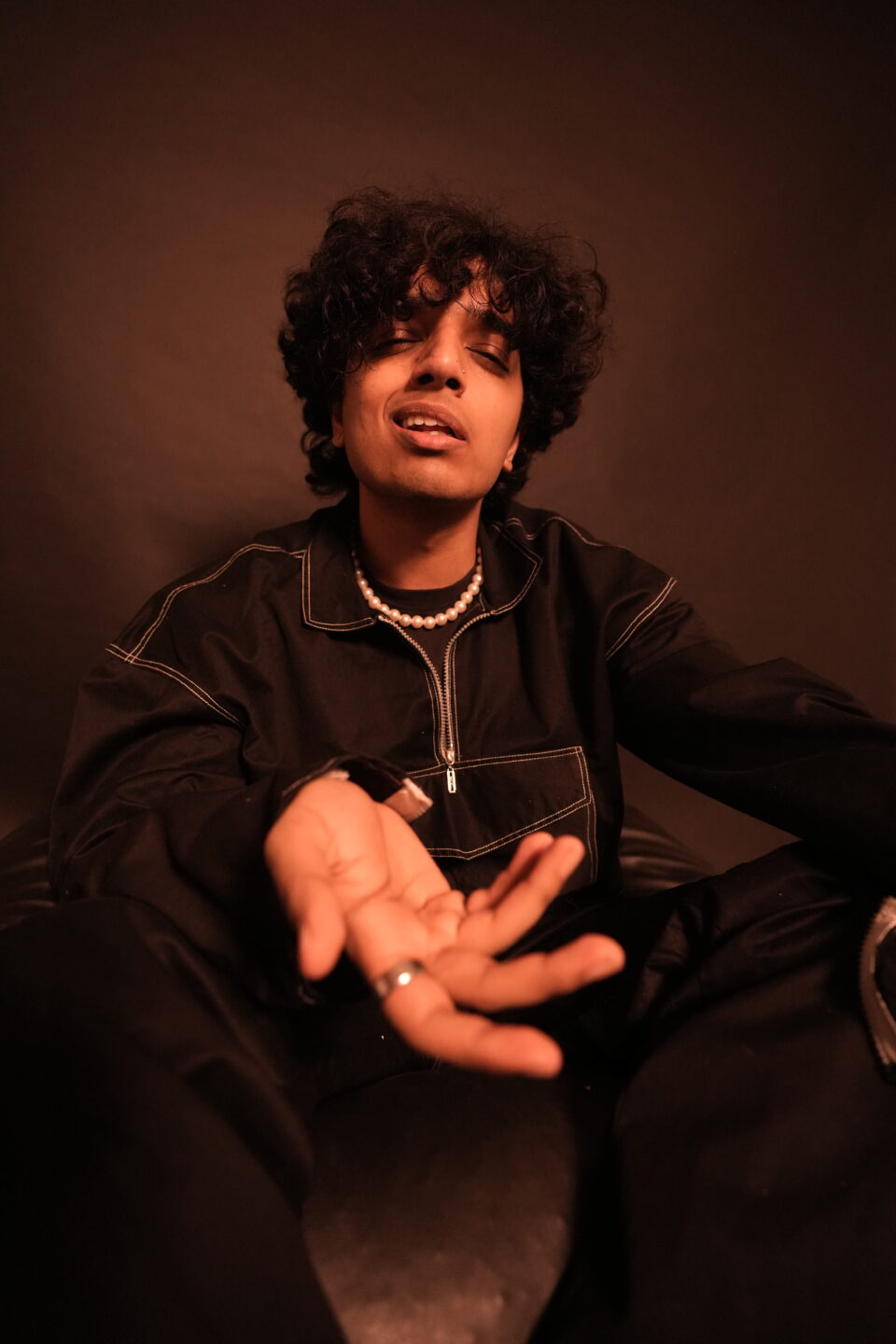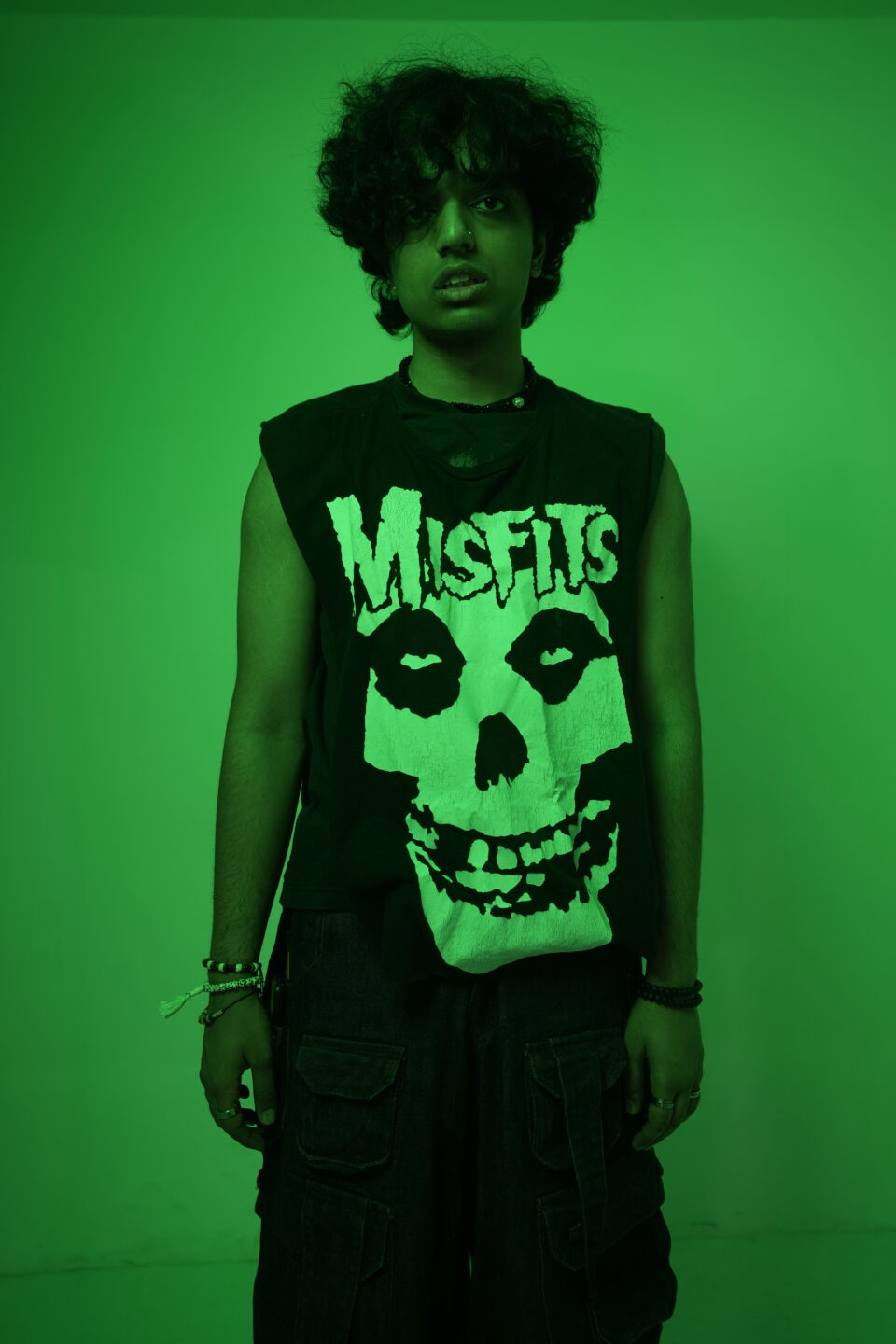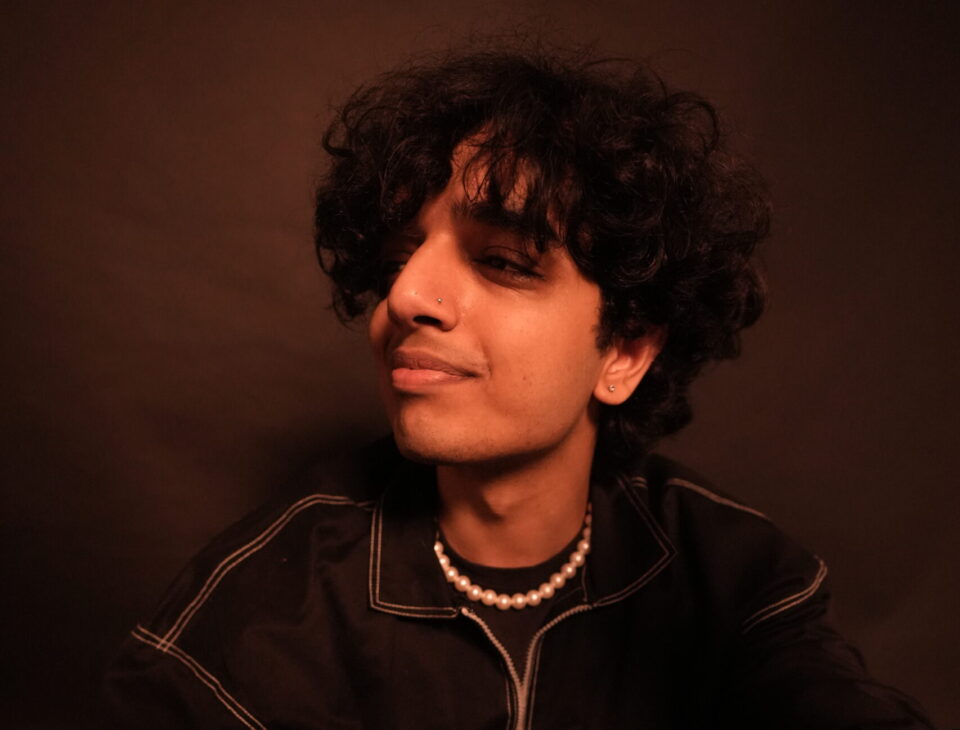
Chaar Diwaari
The shape-shifting artist considers himself a devil’s advocate
Garv Taneja, or as he’s more commonly known on screen and on stage as – Chaar Diwaari, has become one of the most spoken-about artists coming out of Indian hip-hop. The New Delhi-based 22-year-old has proven time and time again that if you have a clear vision and a story worth telling, you will get a scarily loyal fanbase. From the release of his 2022 four-track EP Teri Maiyat Ke Gaane to status-cementing singles such as “Jhaag,” “Garam” and his newly released track “Thehra,” Chaar Diwaari has been pushing the boundaries of what it could mean to create art. Rolling Stone India spoke with him to unravel his artistry.
Rolling Stone India: You once mentioned something in a podcast that really stuck with me. “Chaar Diwaari is what Chaar Diwaari will become.” What did you mean by that?
Chaar Diwaari: [laughs] Yeah I feel like what I said is both good and bad. I guess it means to me to always try to push harder and actually test my limits all the time. But it also creates some mental pressure. My public persona is what I want people to see versus who I am, just as Garv Taneja, you know?
I want to explore your personal journey in reaching to where you are today. You briefly attended Mumbai’s True School of Music. What was the experience like?
True School of Music was the most important and the most useless thing that I’ve ever done. It gave me as a person and as a musician, the most I’ve ever gotten, it shaped my life in those three years that I was there. But it was useless in terms of what we went there to do, we didn’t do [any of it].
We went there to study, we didn’t study there. But we came back as different people because of the environment. It’s a very isolated place. My campus was huge — it was just super empty sometimes. So, in such an isolated place, if you see the same 30 people every day when you wake up, you are bound to change.
How much importance do you place on “textbook” education of music, versus a more “throw at the wall and see what sticks” approach?
I’m not sure because I’m a devil’s advocate in that sense, because knowing nothing and knowing everything are both great ways to [be] and also knowing something [about] all of them. They’re great ways to make music. I’ve recently I’ve started to believe that it’s important to know the rules to break them.
I’m not the most intelligent person in terms of music theory. But I don’t know it fully. I know enough to write my own music. I’ve seen people who know nothing write much better songs than I have ever had. Sometimes I wish I didn’t know anything, because that puts you in a different mindset altogether and you try to make something that you will never usually do.
It’s a bit of both, I feel.
When you released the music video for your track “Barood,” the audience response was incredibly analytical – in the sense that many people seemed to have unique interpretations of your work. Do you think there should be inherent meaning attached to whatever you do, or do you revel in the abstractness and absurdity of what you make?
In my work, I have a story that I want to tell and I tell that story in the way that I want to tell it, but I also leave room for imagination. Because that’s how I like to enjoy art.
I didn’t know what [‘Barood’] was about. I didn’t know. It was very fascinating to me because of the way it was composed.
It’s a very weird, almost dreamy way of writing that song. I’ll give room for people to bring in their interpretation which are always very interesting. They have very strong responses. Sometimes they blue ball me. Either they don’t like one choice I made and it ruins their whole day or they’re like, ‘Oh fuck, this is the best thing ever.’

You don several caps in your career. As a rapper, a performer, a director, a video editor, a curator. Do you enjoy having this much ownership and involvement in all your work? Or does it ever feel burdensome?
I love directing my music videos. I love making my music videos. Sometimes set, it’s very hard to, you know, like go to the other end because it’s very chaotic. Making a something original means that sometimes you have to throw your amazing idea straight out the fucking window.
When you have a limited budget, you gotta problem solve. You’re doing it in real-time and you have real stakes on point because you have a limited budget and there are only a certain amount of things you can and cannot do. So, bringing a great video out is a challenge and it’s also like a game.
Are there any films, directors or auteurs that you often look to for inspiration?
So, Pyaasa is my favorite film. Guru Dutt, I see as a big inspiration. I see Anurag Kashyap, David Fincher, [Quentin] Tarantino. But yeah, I’m like your average film bro also.
You know, I fuck with sad Ryan Gosling movies. I love that. It’s one thing to be inspired it’s another thing to attempt to imitate. It’s a very difficult challenge to try and replicate or imitate what someone that you really look up to tries and does. But when you do it in your own [way], it’s nice and feels nice.
I’m a very amateur director. I feel like I don’t have a particular style yet. I’m still developing that and learning my way up. I have no like real knowledge of how cameras work and how lights and everything works. I just have a very straightforward idea in my head and I just know what I want. I know how it’s supposed to look, I know how the camera will move, how it will be choreographed. I have to practice a little more but I’m getting better with every video I make, I believe.
Talk to me about Desi Hip-Hop [DHH]. What does it mean to you? How have you, along with contemporaries like Yashraj, Arpit Bala, MC Kode, Gravity, worked to develop the identity that it holds?
I’m very thankful because when I came up in the scene, the DHH community welcomed me with open hands and open arms and they’re a very tightly-knit fan base of sorts. As time goes on — I can already feel it — I’ve stopped making hip-hop music, I’m making music that I’m infusing everything that I want to in a single song. To me it’s a very free art form now. I’m not looking at making a beat and rapping over it. I guess with time the music that I’m going to make — the music that other people are going to make — will help bring out maybe another community of music enthusiasts.
The current ones will also have their taste buds developed because I feel that the current hip-hop scene is very saturated. We have the same people doing the same things over the same type of beats over and over again. I guess it’s time for a change. We need artists who are trying to push the boundaries. I feel that the DHH community itself will also evolve very much as new artists come in.

What are your thoughts on the integration of newer technologies, like artificial intelligence, in music?
I’ve worked — in fact all the musicians that I know — have worked a lot on the skill aspect of making music. With every generation that comes, you feel like the older generation complains about the newer technology. When the 8-track came and mono became stereo and then programming came and so on and so forth, the idea of real music is always questioned. Is this real music anymore? Is electronic music real music? It created in a doorway to let people in and challenge things. If you listen to some of my songs you barely hear any real instruments — it’s a very feeling-driven and programning-driven approach.
I guess artificial intelligence will obviously have a big role to play but more than even adapting, it’s about embracing it. I have to understand how it can add to the process and embrace the goods and the bads because it’s almost inevitable. In one year, the development that AI has had, it’s incredible and I think the most that I’ve seen in any sort of media so I’m excited and very scared at the same.
I’d love to know what you have in store for the coming year. Are there any specific projects that you’re excited to share with the world? What should we expect from Chaar Diwaari this year?
I have two or three singles and then an EP lined up, there is this EP that I’ve been working on, it’s called Duniya Aur Diwaari and which hopefully drops this year only and before that I have 2-3 songs that I want to share with people. I’m going to keep changing, keep evolving, keep becoming a better musician keep becoming a better artist and that’s about it.




